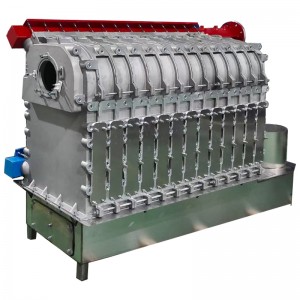- Afrikaans
- Albanian
- Amharic
- Arabic
- Armenian
- Azerbaijani
- Basque
- Belarusian
- Bengali
- Bosnian
- Bulgarian
- Catalan
- Cebuano
- China
- China (Taiwan)
- Corsican
- Croatian
- Czech
- Danish
- Dutch
- English
- Esperanto
- Estonian
- Finnish
- French
- Frisian
- Galician
- Georgian
- German
- Greek
- Gujarati
- Haitian Creole
- hausa
- hawaiian
- Hebrew
- Hindi
- Miao
- Hungarian
- Icelandic
- igbo
- Indonesian
- irish
- Italian
- Japanese
- Javanese
- Kannada
- kazakh
- Khmer
- Rwandese
- Korean
- Kurdish
- Kyrgyz
- Lao
- Latin
- Latvian
- Lithuanian
- Luxembourgish
- Macedonian
- Malgashi
- Malay
- Malayalam
- Maltese
- Maori
- Marathi
- Mongolian
- Myanmar
- Nepali
- Norwegian
- Norwegian
- Occitan
- Pashto
- Persian
- Polish
- Portuguese
- Punjabi
- Romanian
- Russian
- Samoan
- Scottish Gaelic
- Serbian
- Sesotho
- Shona
- Sindhi
- Sinhala
- Slovak
- Slovenian
- Somali
- Spanish
- Sundanese
- Swahili
- Swedish
- Tagalog
- Tajik
- Tamil
- Tatar
- Telugu
- Thai
- Turkish
- Turkmen
- Ukrainian
- Urdu
- Uighur
- Uzbek
- Vietnamese
- Welsh
- Bantu
- Yiddish
- Yoruba
- Zulu
Nov . 22, 2024 21:46 Back to list
centrifugally cast pipe
Centrifugally cast pipes are an innovative engineering solution that have gained prominence in various industries, particularly in water supply and sewage systems, due to their superior material properties and manufacturing advantages. This method of pipe production is characterized by the use of centrifugal force to distribute molten metal uniformly within a mold, resulting in pipes that possess enhanced durability, strength, and resistance to corrosion compared to traditional casting methods.
The process begins with the creation of a cylindrical mold that is rotated at high speeds. As the molten metal is poured into the mold, the centrifugal force generated by the rapid rotation pushes the metal against the mold's inner surface. This unique action ensures a denser material composition at the outer layers, which is critical for improving the mechanical properties of the final product. The inner layer, while still strong, can be less dense, allowing for a lightweight pipe that retains formidable strength.
One of the most significant advantages of centrifugally cast pipes is their enhanced durability. The uniform density and microstructure achieved through centrifugal casting lead to fewer voids and defects within the material. As a result, these pipes exhibit exceptional resistance to wear, which is particularly beneficial in applications involving the transport of abrasive materials or fluids. Additionally, the high tensile strength offers greater resistance to internal and external pressures, making them a reliable choice for high-pressure applications.
Corrosion resistance is another critical factor that makes centrifugally cast pipes favorable in various environmental conditions
. By selecting specific alloys or treatments, manufacturers can produce pipes that resist rust, chemical wear, and degradation from harsh environmental conditions, extending their service life significantly. This property is essential for infrastructure projects, where the costs associated with maintenance and replacement can be substantial.centrifugally cast pipe

Centrifugally cast pipes are highly versatile and can be used in a variety of applications, ranging from municipal water systems to industrial settings. Their ability to withstand extreme temperatures and pressures lends them well to steam and chemical transport applications. Moreover, in the field of sewer systems, these pipes help to mitigate issues related to blockages and leaks, ensuring a more efficient waste management system.
Moreover, the production of centrifugally cast pipes is often more environmentally friendly than traditional pipe manufacturing processes. The efficient melting and casting process reduces overall material waste, and the longevity of these pipes minimizes the environmental impact associated with replacement and repairs.
In conclusion, centrifugally cast pipes represent a significant advancement in pipe manufacturing technology. Their superior mechanical properties, exceptional corrosion resistance, versatility, and environmental sustainability make them an ideal choice for modern infrastructure needs. As industries continue to seek reliable and durable solutions to meet ever-increasing demands, centrifugally cast pipes will undoubtedly play a crucial role in the future, paving the way for more efficient and sustainable systems across the globe.
-
Premium Cast Iron Water Main Pipe: Durable, Corrosion-Resistant
NewsAug.03,2025
-
Durable Cast Iron Water Mains | AI-Optimized Systems
NewsAug.02,2025
-
High-Efficiency Propane Boiler for Baseboard Heat | Save Energy
NewsAug.01,2025
-
Premium Source Suppliers for Various Gray Iron Castings
NewsJul.31,2025
-
Durable Cast Iron Water Main Pipes | Long-Lasting
NewsJul.31,2025
-
High-Quality Cast Iron Water Main Pipe for Durable Infrastructure
NewsJul.30,2025


